Universities’ Dormitories
01 August 2017
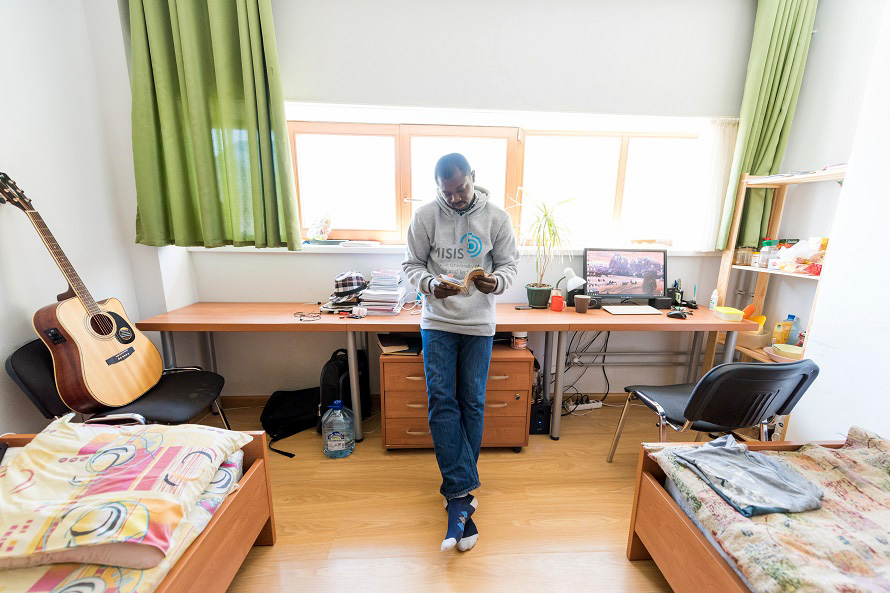
© MISIS
A majority of international students live in dormitories during their study in Russia. As a rule, dormitories are located close to teaching blocks with accommodation fees much lower than apartment or hotel rental rates.
Types of Dormitories Available for International Students in Russia
Russian universities have corridor-type, block-type and apartment-type dormitories. Corridor-type dormitories tenants share shower rooms, lavatories and kitchens on the floor, while in block-type dormitories amenities are available in each section. In apartment-type dormitories, all living quarters come equipped with a bathroom and a kitchen. Many universities offer all three types of dormitories;
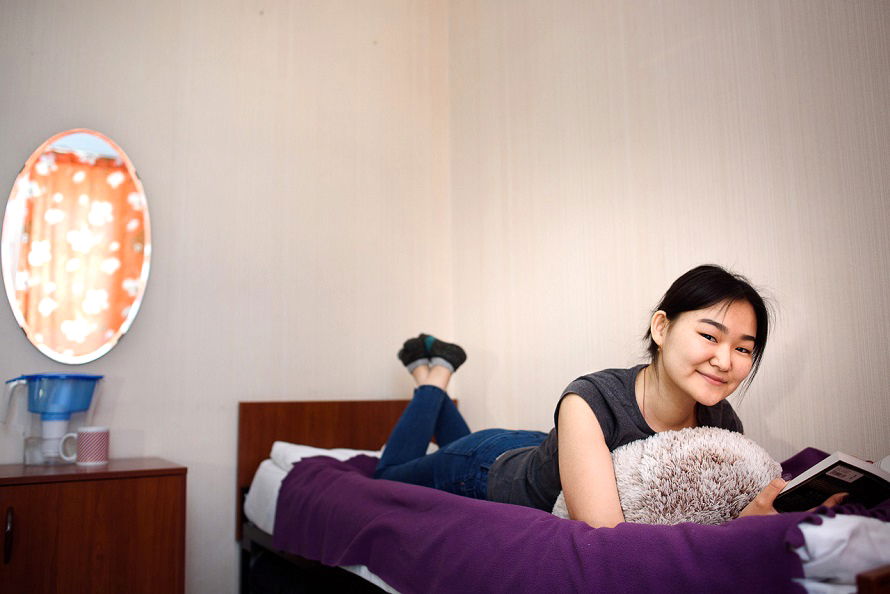
© NSU
This is routine practice at Ural Federal University and Siberian Federal University. University of Tyumen Only accommodates international students at apartment-type dormitories. South Ural State University provides block-type housing for international students, while National Research Lobachevsky State University of Nizhni Novgorod has corridor-type housing.
Some Russian universities accommodate international students in hotel style dormitories. For example, Kazan Federal University international students live in Universiade Village neighbourhood built for participants in the World Summer Students Games 2013 in Kazan. Far Eastern Federal University Accommodates students at the APEC Summit 2012 complex featuring four-star hotel living conditions and daily room cleaning.
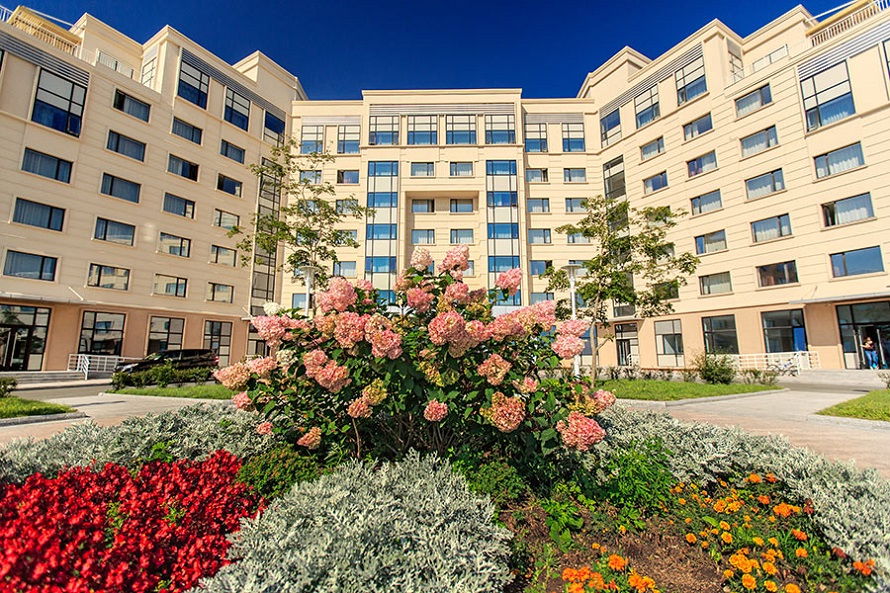
© FEFU
Some universities’ dormitories are historical buildings. National University of Science and Technology MISIS international students live in Dom Kommuna, a unique Constructivism era architectural monument dating back to early XX century. This is not to say that students do not have enough comfort: this dormitory was recently renovated and upgraded but its original appearance remained intact.
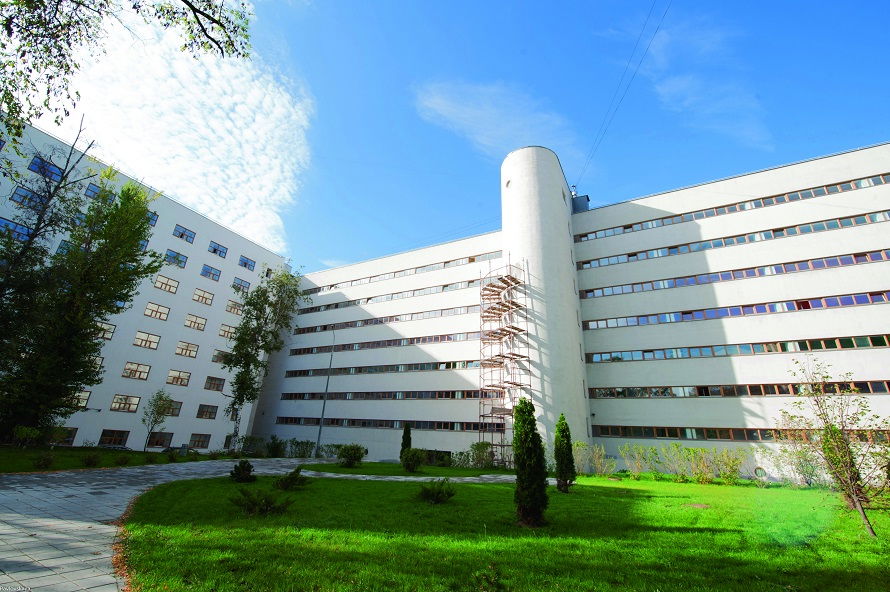
© MISIS
Dormitories Living Conditions
There are normally one to four people living in each room. Two- to three-person rooms are usually allocated to bachelor’s students (four-person accommodation is infrequent), two-person rooms are shared between master's students and post graduates are offered single occupancy rooms at some universities. International students can be accommodated with their Russian peers or at the dormitories specially reserved for foreigners.
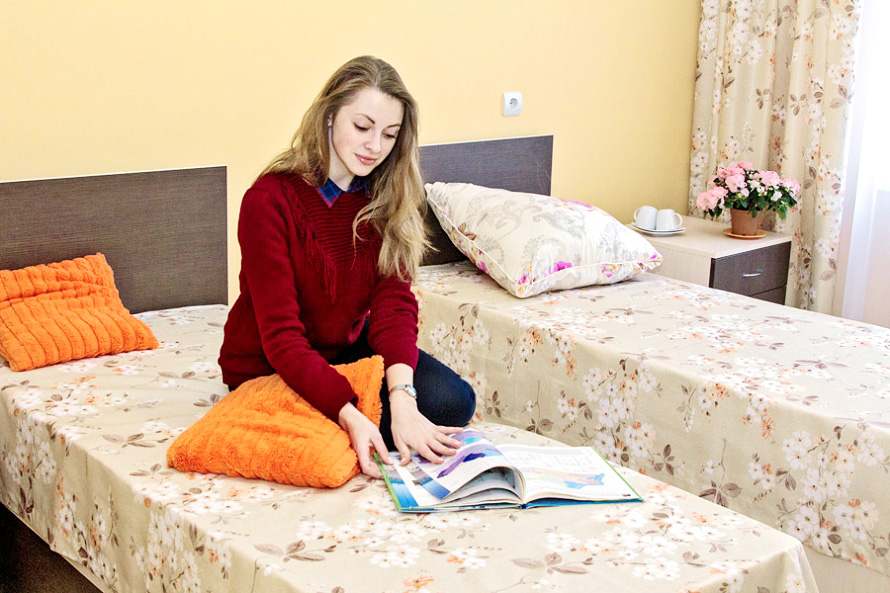
© IKBFU
National Research Tomsk Polytechnic University has dedicated housing for recent arrivals taking preparatory courses. University specialists help them adapt to campus life. Immanuel Kant Baltic Federal University accommodates international students together with RF students to improve their Russian language proficiency and knowledge of Russian culture.
Peoples’ Friendship University of Russia has a well-deserved reputation of a most international university; its policy is to put international students from different counties in each room. This university thus encourages cross cultural communication between students as they get to know other nations’ traditions and learn to come to terms.
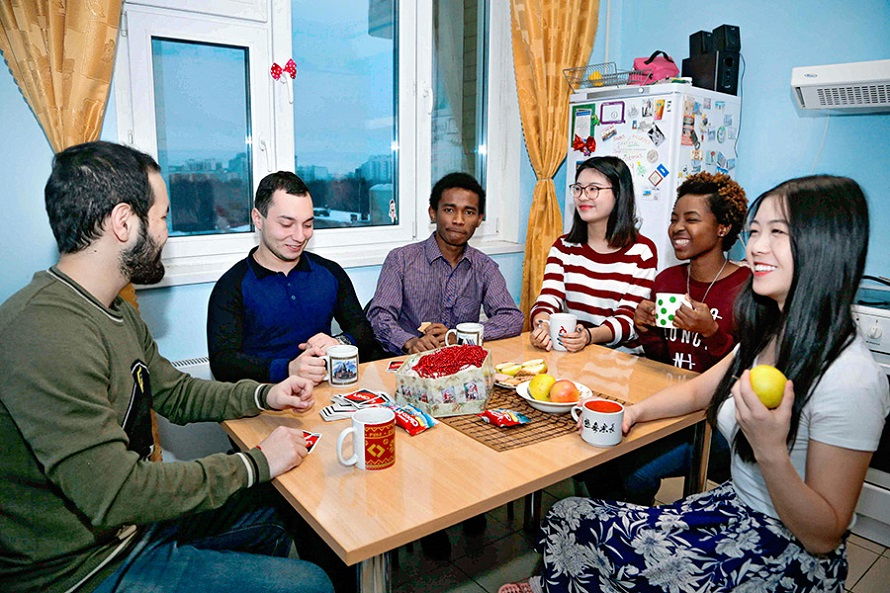
© RUDN University
Cooking national dishes is a popular form of “cultural exchange.” Students cook their country’s traditional dishes and treat their neighbours. Kitchens in a majority of dormitories are equipped with electric stoves, microwave ovens and sometimes have enough cookware to craft meals.

© RUDN University
Most Russian universities dormitories are within walking distance to main teaching blocks. At some universities however, students have to use public transport to come to lectures. Higher School of Economics students take a 25-minute trip by underground or a 40-minute bus ride to get to teaching block. Far Eastern Federal University teachers and students use free shuttle buses to commute around the vast campus.
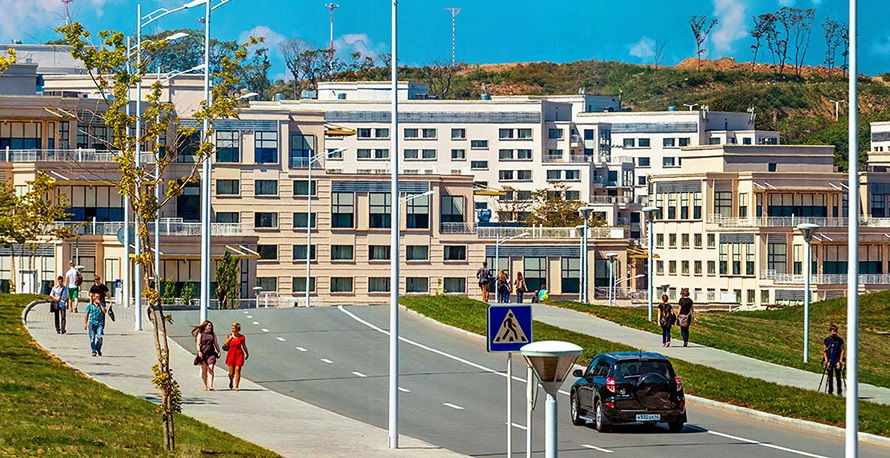
© FEFU
Russian universities pay much attention to students’ safety. Many dormitories had CCTV cameras installed and have watchers and guards on round-the-clock duty. Students usually have to show their passes to get into dormitories; some dormitories even deployed fingerprint scanners at the entrance. Each building has a fire safety system. Dormitory administration is making all efforts to ensure comfortable and calm life for international students. A number of universities task their dorm staff with attending English language courses for easier communication with international tenants needing help.
Accommodation Fees
Accommodation fees depend on where the university is located, dormitory type, the number of students sharing a room and some other factors. Peter the Great St. Petersburg Polytechnic University housing rates vary depending on studymode, education programme and comfort level. study contract students’ accommodation fees start from 3,000 rubles ($50) per month.
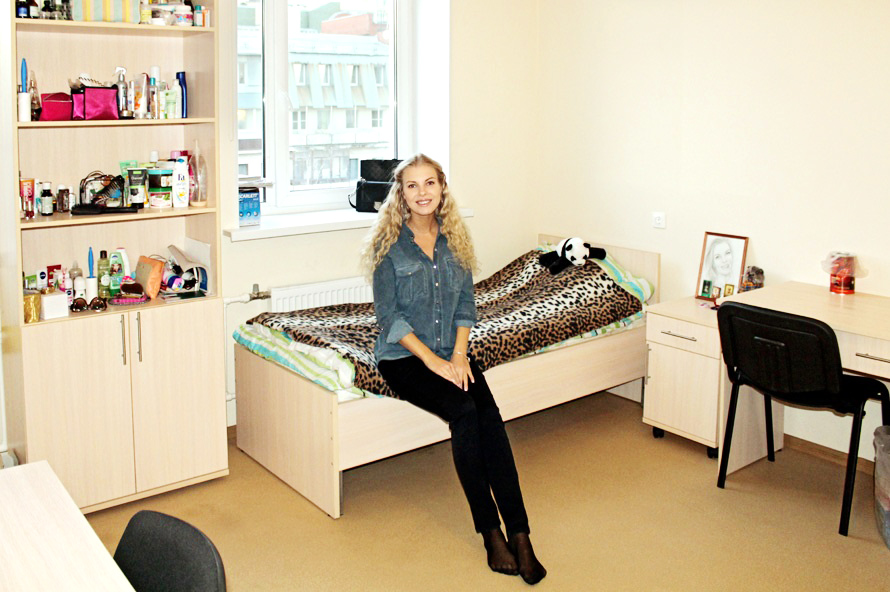
© SPbPU
Moscow Institute of Physics and Technology dormitories fees range between 1,000 and 1,200 rubles ($17-20) per month. National Research Nuclear University MEPhI (Moscow Engineering Physics Institute) housing rate is 600 roubles ($10) per month; its branch in Obninsk, Kaluga Region, offers housing at 500 rubles ($9) per month. Siberian Federal University offers accommodation at 590 to 930 rubles ($10 to $16) per month depending on dormitory type.
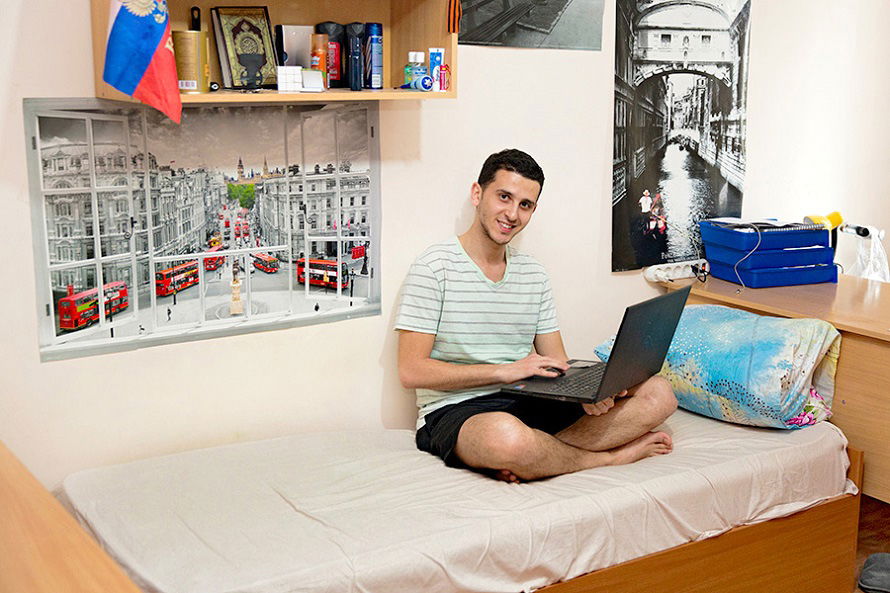
© MEPhI
University of Tyumen keeps accommodation fees at 670 rubles ($11) per months for all students. Ural Federal University housing rates do not exceed 1,100 rubles ($18) dollars per month. Far Eastern Federal University students pay 3,700 rubles ($62) per month for double occupancy option.
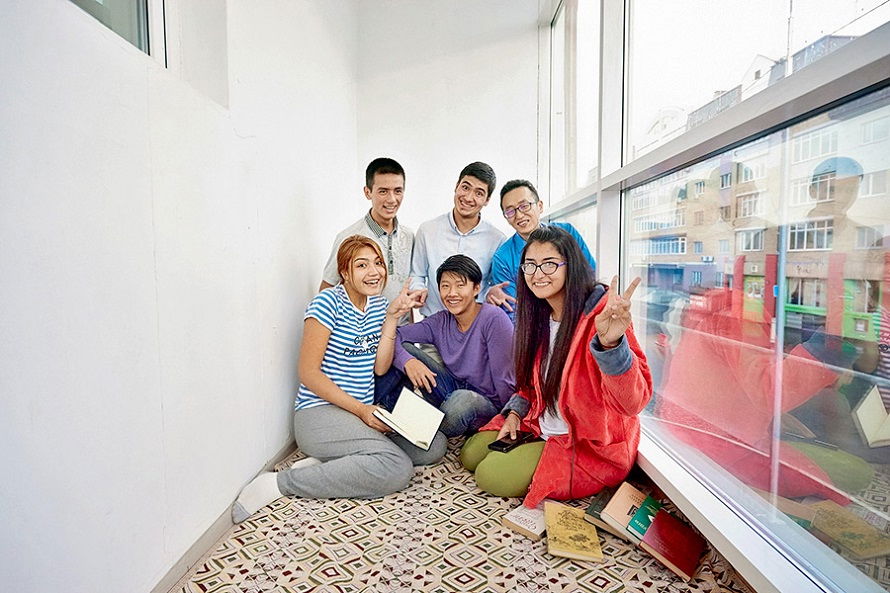
© UT
Rooms usually have standard furniture set (bed, wardrobe, table, chair, bedside cabinet etc) A bedding package (mattress, blanket, pillow and bed linen) is provided. Some dormitories purchase hangers, curtains, bedspreads and housing appliances for students. Irons, ironing boards, clothes airers and vacuum cleaners are available for free use on each dormitory floor at South Ural State University.
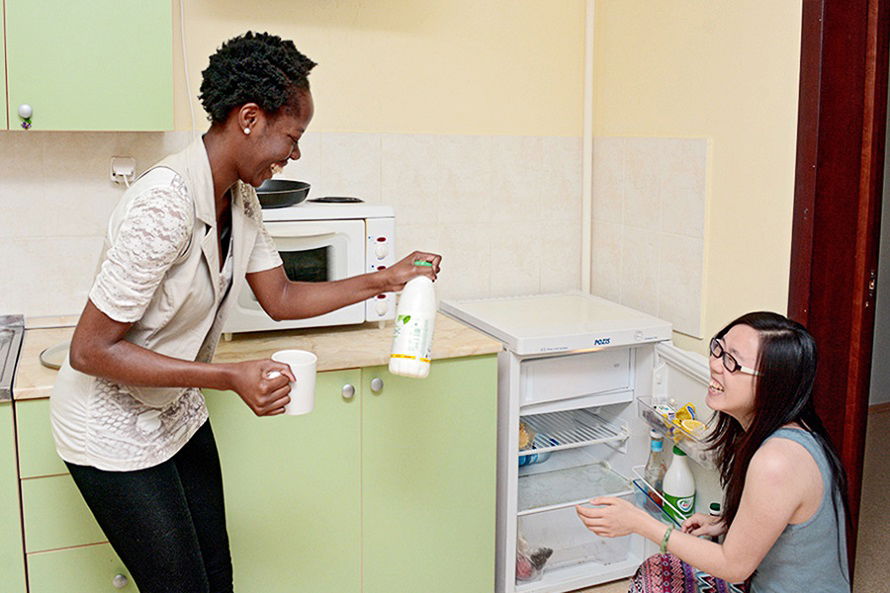
© KFU
At some dormitories you can choose the Spartan option to only pay the housing rate. A number of dormitories offer appliance rental option (with students keeping equipment in their rooms). National Research Tomsk Polytechnic University accommodation fee is 800 rubles (some $13) per month, which increases to 1,040 rubles ($17-$18) per month for using appliances (refrigerator, microwave, kettle, television).

© NSU
Each dormitory has laundries. Washing machines are installed in the kitchens at some universities for free use anytime. Other universities have dedicated laundry rooms. One washing machine cycle at ITMO National Research University costs 150 rubles ($2.5); National Research Tomsk State University charges 50 rubles (about $1) per cycle.
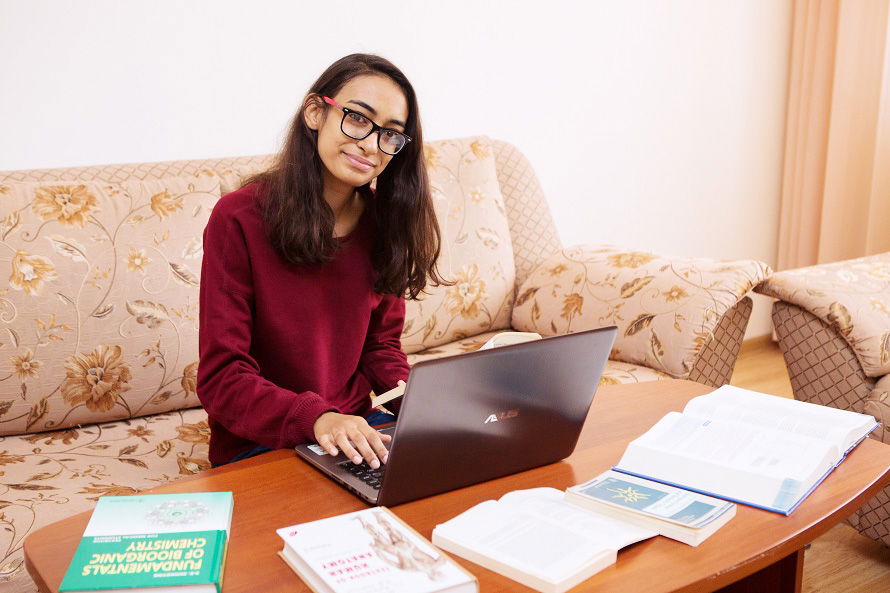
© MSMU
Internet access is available at all Russian universities. Immanuel Kant Baltic Federal University and National University of Science and Technology MISIS offer Internet access for free, but wi-fi connection is largely available at teaching blocks, libraries and dorm halls; students pay extra for in-room Internet connection option or for connecting via dedicated line.
Tomsk State University dorm halls offer free wi-fi. In-room Internet option costs 150 rubles ($2.5) per month. Novosibirsk State University Internet connection option is available at 400 rubles ($7) per month. Siberian Federal University dormitories offer several Internet options priced from 250 rubles ($4) per month, depending on Internet speed.
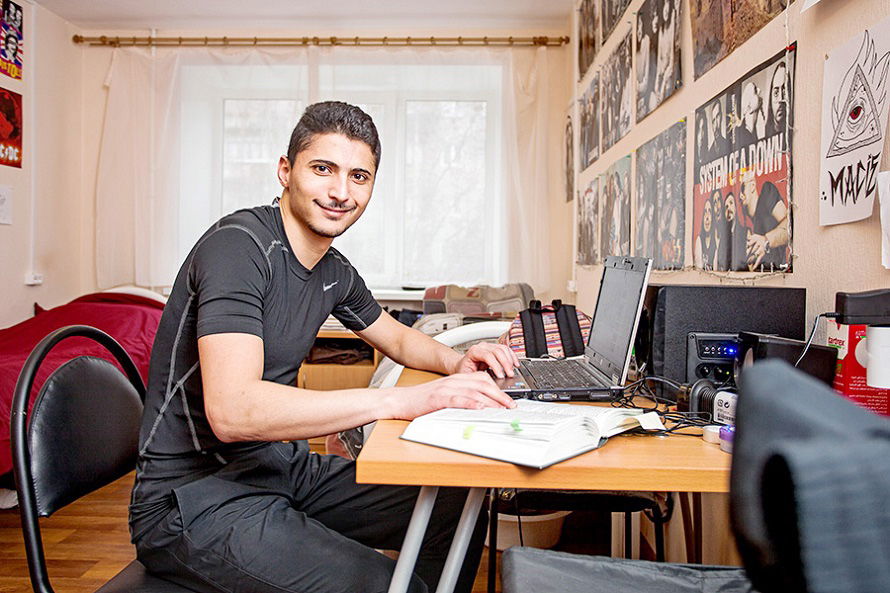
© UNN
Cable or broadband Internet prices in Russia are among the lowest in the world. A standard phone plan with Internet quota costs 200 to 500 rubles ($3-$8) per month.
Dorm Area
A university campus is often “a town within a town” with its own vital infrastructure facilities, including shops, cafes, dining halls, pharmacies, bank offices etc.
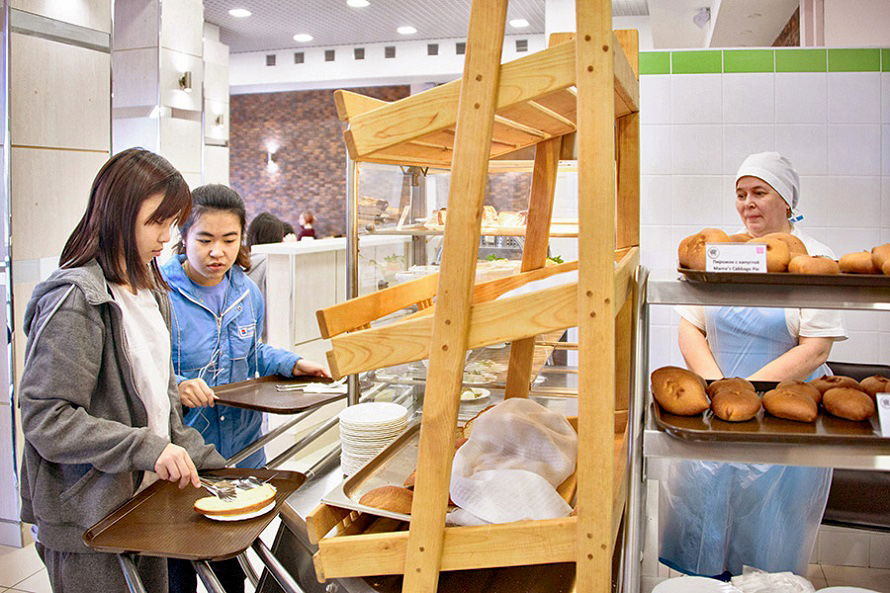
© TSU
South Ural State University campus has a cheap hair saloon. Peoples’ Friendship University of Russia campus features numerous national cafes and restaurants offering tasty inexpensive meals.
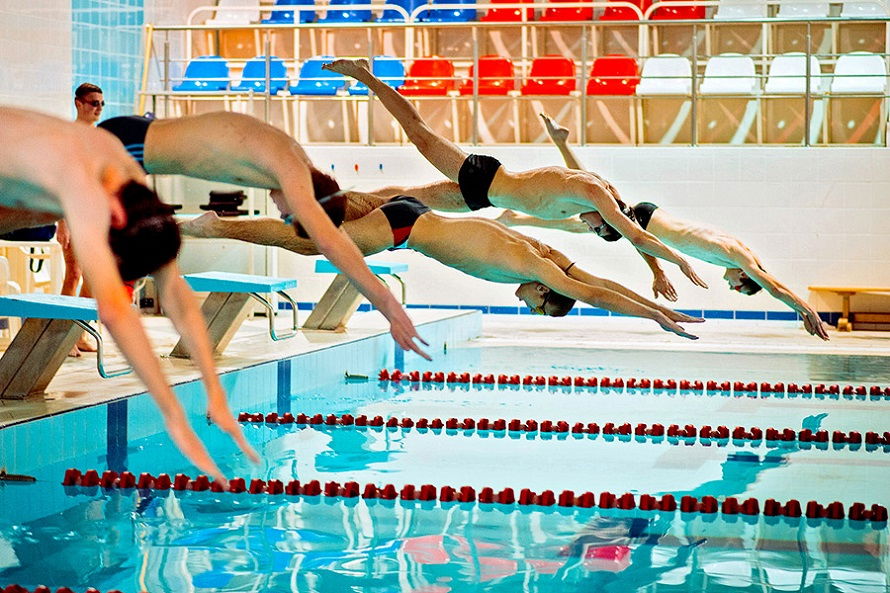
© NSU
Far Eastern Federal University has a swimming pool, fitness rooms and sport and recreation centres. Novosibirsk State University also has a swimming pool, tennis courts and physical game halls. Nearly all Russian dormitories run sport centres where students can work out for free or for a modest fee. A visit to ITMO National Research University fitness centre costs 100 rubles ($1.5 to $2).
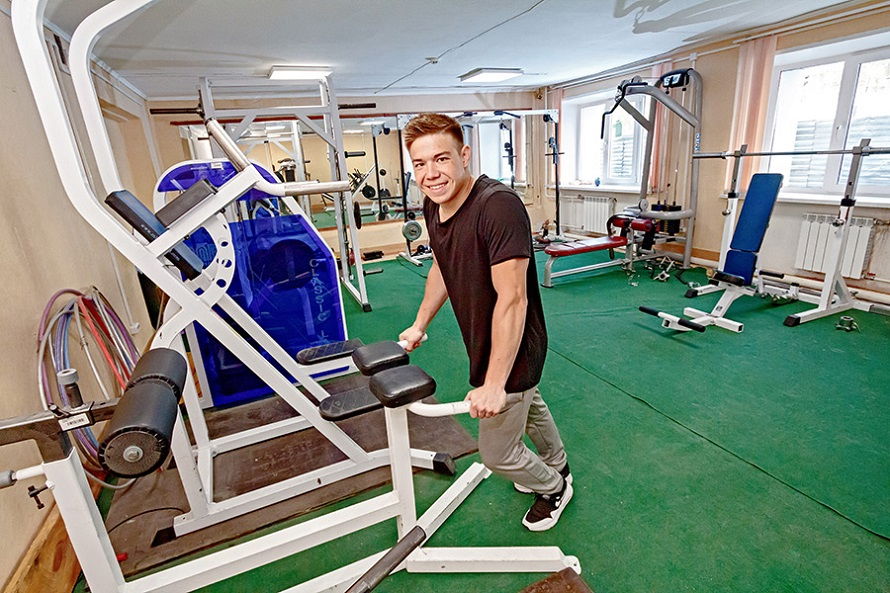
© TPU
All universities have numerous sport societies or creative groups. Kazan Federal University students can diversify their leisure activities and join the Fine Arts Studio, Saint Petersburg Electrotechnical University "LETI” dormitory operates a cinema club, while Higher School of Economics dorm students can take dance, yoga or boxing classes.
